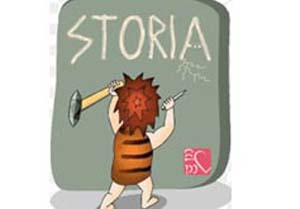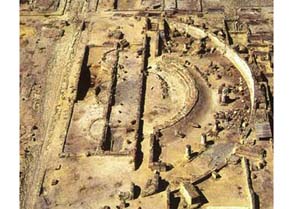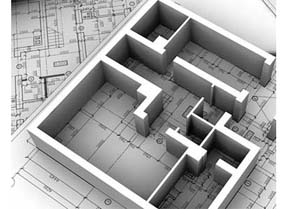"The build up
of missiles in Cuba in 1962 was a deliberate,
provocative and unjustified action". To what extent do you agree with this
statement?
The Cuban
missile crisis presented the most direct and acute Soviet -American
confrontation; it portrayed the occasion on which the two sides have come
closest to the brink of nuclear war. The build up of the armaments in Cuba in
1962 was carefully thought out in advance, an intentional Soviet plan.
According to the American Orthodox point of view, it was extremely provocative
and bellicose. For the first time the USA found not only a communist Island in
their backyard, but one armed with nuclear weapons. The situation presented a
threat to national security. At first, the problem wasn't taken too seriously,
the EX Comm members thought they were in full knowledge of the Soviet nuclear
potentials. Both J.F.K. and Robert MacNamara (his secretary of defense) thought
the missiles as much a political problem as a military thread. As the crisis
developed and became public, panic took hold across the USA. In the revisionist
Soviet retrospective the placement of missiles was to avoid a potential
confrontation not to cause one. ' When we put our ballistic missiles in
Cuba, we had no desire to start a war, no the contrary, our principal aim was
to deter America from starting a war".
To a vast extent the Soviet reasons for the build up in Cuba were justified.
The Soviet
Union had just begun to embrace relations with Cuba, a Communist state in Latin
America would have served as an example to the other countries whose economy
was on the way to prosperity but was still fully controlled by American
imperialism. Even though Cuba was stationed 11,000 km away from Russia,
Khrushchev knew he could not lose Cuba. He feared that by ignoring the uprising
of Marxism-Leninism in Cuba, the Soviet image would have suffered a grave
diminish throughout the world, but especially in Latin America. " If Cuba fell,
other Latin American countries would reject us".
Khrushchev continued to consider a deliberate way to intervene with the
American influence in Cuba. "We had to think up some way of confronting America
with more than words. We had to establish a tangible and effective deterrent to
American interference in the Caribbean" .
The Soviet main justification for placing missiles in Cuba was of defensive
nature, the United States had already surrounded their country with bases and
missiles. American missiles were aimed against the Soviet Union and placed in
Turkey, Italy and U.K. Khrushchev acted
deliberately, he had been planning on the build up since his visit to Bulgaria,
he aimed to place the missiles in secret from the United States, for it to be
discovered when it would be too "late to do anything about them" .
Khrushchev's mistake was his grave miscalculation about J. F. Kennedy. The Soviet leader had disregarded the
American ability of imposing their military superiority when challenged. ". He
hoped to use his opponent's weakness of character to change the balance of
power" . Kennedy's lenient behavior at the Bay of
Pigs, in Vienna and in response to the Berlin wall seemed to have pointed out
certain feebleness, which to Khrushchev's eyes was a sign of submission.
The Soviet
Union wasn't committing an illegal act by placing nuclear weapons in foreign
ground. As much as the missiles caused an affront to the United States, they
were in no sense illegal. The Americans themselves had surrounded Russia with
nuclear bases on allied territory in Britain, Italy and Turkey. The Soviets
were after "the balance of power"; they wanted an equalized amount of nuclear
weapons distributed in strategic places around the world, including foreign
ground. Khrushchev referred to the decision as " doing nothing more than giving
them a little of their own medicine",
concluding that America would learn
"what it fells like to have enemy missiles pointing at them" . The first American reaction was to find the
stationing of missiles discordant with the Soviet foreign policy, for Russia
had never before placed nuclear missiles outside their own boarders; and
overall suspicious. The Soviet nuclear possession was reasonably inferior to
the Western one, however, by placing the ICBMs she owned in Cuba she would have
created a profitable military leap, partially achieving the desired
parity. The American response, maybe
overreacted, was in a way justified. For the first time they were in a
situation that if a war erupted, it would occur in their backyard. They were
tangled in serious threat to national security.
Kennedy was left with five options: to do
nothing , for America still had a greater nuclear power than the Soviet Union,
but it would have portrayed too much weakness and recklessness. To proceed in
an "Surgical air attack" , which would have been too much of a risk-taking and
wouldn't have guaranteed the complete destruction of the missiles sites.
Thirdly to continue with diplomatic pressure, which would have been of no
advantage, it could only supply the Soviets with more time to set up their
missiles. Fourthly to invade by air and sea, but this plan would certainly
provoke the Soviets to reattribute with an equally aggressive reaction maybe
not in Cuba but in Berlin. The last option, the one that was put to practice was
the "Quarantine", a naval block aid designed by MacNamara in order to ban the
Soviets on bringing any further military supply to Cuba. The American policy
presented an offensive situation, it "violated every canon of international law
and civilized bilateral behavior"
by placing the block aid first at 800 mi. from Cuban shores and later at 500
mi. attempting to control any shipments originating from the Soviet Union.
Kennedy was also under a great deal of pressure from the military whose main objective was to proceed with
aggressive measures. Khrushchev saw the
situation as if " the Americans were trying to frighten us, but they were not
less scared than we were of atomic war." The crisis finally reached its peak on
October 27th, the black Saturday, Khrushchev agreed on removing the
weaponry under the circumstances that the U.S. would also remove the analogous
weapons placed in Turkey.
In
conclusion, the Soviet placement of the nuclear missiles in Cuba in 1962 was
definitely deliberate, Khrushchev had planned ahead on attempting to create a
certain parity of powers and had concluded that missiles in foreign ground was
the best way to achieve it. It was provocative from an American perspective,
Soviet control over Cuba had gone beyond influencing the Island and furthermore
other nations, it had now become a site of enemy weaponry deposit. On the other
hand, from a Soviet perspective, they weren't acting any form illegally by
placing nuclear weapons in Cuba, their action was well justified since the
United States had nuclear bases in surrounding Russia. The crisis was to a
certain extent provocative, having nuclear weapons placed in a neighboring
country by an enemy power certainly created a threat to American security.
Reaching the brink of nuclear war, the two most powerful nations of the world
had been squared off against each other "each with its finger on the button".
However in the aftermath both sides showed that the desire to avoid nuclear
confrontation was stronger, and even under the heaviest pressure both sides
arrived at a common compromise.







